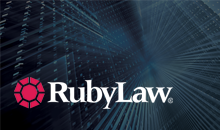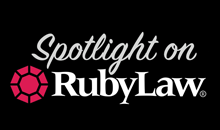It’s Time to Move your Firm Off of Sitecore: Here’s Why.
Though powerful, Sitecore is a sub-optimal choice for content management for top law firms. We spoke with legal marketers that have experience using Sitecore, and they told us why firms should abandon using it.
The Backstory
When Sitecore first came to Legal, service providers grew giddy with excitement, as the platform’s enterprise-level features had appeal—particularly for large, international law firms with distributed Marketing teams. The belief was that this industrial-strength software could support powerhouse publishing cadences, while meeting the rigors and standards of a regulated industry like Legal.
Particularly between 2016 and 2018, when RubyLaw CLM was solely focused on Am Law 100 firms, we often opposed Sitecore implementers in competitive situations. The outcome of those pitches was frequently 50/50, as some firms opted for the perceived safety of a global brand while others understood the true benefits and flexibility of RubyLaw.
Fast forward to the present, and we are competing against Sitecore less and less, and it’s not just because our RubyLaw Express option has opened up the market for us, or because there’s inherently anything wrong with Sitecore; in fact, it is a solid, widely-adopted solution.
It’s just not a fit for most law firms or legal marketers.
Supporting this Position
We are biased.
We believe that the RubyLaw Content Lifecycle Management (CLM) platform is a superior option for all law firms in the marketplace for powering websites, managing experience content, generating proposal documents, and ensuring digital content integrity.
However, we came to this conclusion—and developed and evolved our cutting-edge, legal sector-focused platform—by competing against Sitecore and developing innovations to shift those 50/50 outcomes to dominate in our favor. Moreover, we have spoken with dozens of legal marketers that rely on Sitecore, asking them about the pain points they have experienced as users and baked their responses into not only this article—but into the RubyLaw CLM platform itself.
The following section paraphrases actual conversations that we have had with current and former Sitecore users at leading law firms during prospecting calls, pitches, and candid discussions about legal marketing technology, including those that have switched to RubyLaw from Sitecore. We are keeping the names of individuals and their respective firms anonymous.
Sitecore User Feedback
Our conversations with legal marketers surfaced five critical reasons why firms should move off Sitecore. They are captured below:
“It’s too much system for our team.”
Sitecore is, as promised, a powerful tool. However, with its strength comes an operating architecture that increases lag and complexity. The system tends to add extra steps to even the simplest task, increasing the overhead required by a team to do their daily work. One former user told us:
Everything is more complicated and takes longer than it should. Even simple edits require complex, multi-step processes. For instance, when adding a new page, it’s not a simple, “Click; Add-New-Page” action. It feels like we have to build every page from scratch.
Obviously, there’s a lot of power in that, but at the end of the day our firm doesn’t need that level of control. It wastes a lot of our time that we could be spending posting and promoting more content. Plus, when somebody new joins the team, the cost of training them on our Sitecore instance is enormous, unnecessarily complicated, and frustrating.
Simply put: it’s too much system for our team.
How RubyLaw solves for this issue: RubyLaw and RubyLaw Express, an efficient implementation of RubyLaw for growth-minded firms, both provide power; but, each delivers precisely the flexibility that firms of all sizes require. With pre-configured fields based on best practices, as well as infinite customization possibilities, the system is designed to be right-sized and right-fit for the specific team, and firm, in question.
While these user efficiencies may seem minor, aggregated over time they lead to long-term gains that enable clients to work on higher-value, strategic matters (rather than on accomplishing the mundane).
“You can’t set it and forget it.”
While no system, effectively, operates like a watch, re: set it and forget it, Sitecore requires constant maintenance. On top of the attention it needs, it isn’t typically flexible enough to scale or shift as firm objectives evolve. Along these lines, we heard:
First off, it was never set up right. We’re constantly dealing with workarounds and Band-Aids. For example, when we want to add new content, we need to manually make changes in several different places throughout the site.
We’ve had Sitecore experts come in and tell us that this is due to the way the system was originally set up, and that the only way to fix it is to basically rebuild everything.
Even then, it’s that this is just the way Sitecore works. You can’t set it and forget it.
How RubyLaw solves for this issue: RubyLaw provides out-of-the-box best practices for legal marketers coupled with a continuous upgrade model, meaning that users of RubyLaw and RubyLaw Express are always on the most current version of the software. This is coupled with features like the RubyLaw Super Template, a flexible tool that is built to be modular and expansive, giving editors the capabilities they need to create and publish content on emerging topics in real-time.
“It’s not law firm-friendly.”
Sitecore has an extremely powerful offering. Yet, it tends to lack the types of features that, today, are considered “best practices” for law firm Marketing and Business Development teams.
It’s like a bag of Lego blocks with no instructions. The pieces are big, sturdy, and interlocking, but it’s not intuitive how they go together.
Take setting up relationships between content types, for instance. Say we’re linking lawyer bios to Practices and Sectors; it’s more complicated than it should be, which often leads to that information not being published on the website in all of the places visitors may see it.
This, in turn, costs the firm potential missed business opportunities. It’s not law firm-friendly.
How RubyLaw solves for this issue: RubyLaw is designed for legal marketers and business developers, bringing more than 10 years of sector-specific expertise and nuance to the product itself. This includes practices that predominate the law firm landscape, i.e., common search paradigms and navigational elements, as well as RubyLaw 360, a powerful tool for establishing relationships across dimensions of structured content. The result is a more intuitive, expedited, and precise experience for both front-end visitors and back-end users.
“It doesn’t necessarily play nice with other systems.”
The ability to seamlessly integrate with other back-end systems is known to be important. This type of interconnectivity allows content and data to flow between databases, giving users access to essential information and website visitors visibility into material, in real-time, that could influence purchasing decisions. On that note, we heard:
Some law firm content is just content. Other content, though, is really “data” that should be integrated with firm databases like Human Resources systems, Recruiting solutions, CRM systems, and Alumni Management systems.
Consider bar admissions and clerkships as one example. If I am editing a lawyer biography page, I need to be certain that I have selected the right state(s) of bar admissions and courts of clerkships. If I can avoid adding or editing this information manually, I can eliminate the potential of making a mistake, i.e., selecting the wrong state for bar admission. This can actually have legal implications if entered incorrectly.
Sitecore doesn’t necessarily play nice with other systems, which leaves us exposed when it comes to this type of risk.
How RubyLaw solves for this issue: RubyLaw comes out-of-the-box with the RubyLaw Connector module. The module name describes its function, as it provides comprehensive Create/Read/Update/Delete (CRUD) access to site content for external applications, whether intranets or other back-end systems. It’s so easy to use that many of our clients’ IT teams have performed integrations via the RubyLaw Connector without our even knowing!
“It’s not worth spending on the upgrade.”
Software companies have to keep evolving and upgrading to keep their products fresh and secure, and deliver value to their customers. The larger the software company, the more leverage they have to, essentially, force customers to choose between upgrading and churning. Sitecore, we understand from our conversations, has this type of leverage and follows a very different cadence than most law firms.
In speaking with users, though, it’s less about the leverage itself and more about what is gained in exchange for the upgrade. We learned that upgrades did not necessarily include meaningful feature enhancements to the back-end or experiential changes to the front-end. We heard:
Our current version of Sitecore is old. We’ve considered the options we’re going to incur significant costs by upgrading, and we still won’t solve all of our challenges with the system.
As a result, we’re considering the cost of either a full rebuild on Sitecore, i.e., scrapping our current implementation and starting anew, or opting for a “lift and shift” to move over our existing content, brand assets, and design to an alternate system.
We’re in favor of the latter because, with Sitecore, we’re forced to spend on the upgrade but we don’t gain any meaningful efficiencies on either the back-end or the front-end. For us, it’s not worth spending on the upgrade.
How RubyLaw solves for this issue: With every new major version of RubyLaw, we aim to bring the highest impact features to market. These are carefully vetted by our Product team, but they come directly from user (and prospect) feedback, ensuring that we are prioritizing what law firms need most.
Make the jump from Sitecore to RubyLaw
Sitecore is a phenomenally powerful solution. It’s ideal for organizations that have significant structure, process, and budget that requires software to emulate that. In our opinion, though—and in the opinions of legal marketers—it’s imperfect for law firms. Solutions like RubyLaw, a Content Lifecycle Management (CLM) platform that optimizes for performance and price, and is specifically designed for legal marketers, gives firms of all sizes the best of all worlds:
—A modular approach that allows firms to easily augment the core solution with ancillary modules to enable proposal automation, experience management, and content integrity management, i.e., a system that delivers the right amount of strength and structure for your team today—and tomorrow
—The right balance between control and constraint, to ensure maximum flexibility while maintaining brand and content integrity, i.e., a system that comes ready-to-use at launch, that you can essentially “set and forget”
—A solution built specifically for legal marketers, shaped by best practices for managing legal marketing and business development content, i.e., a system that is “friendly” for law firms because it is built specifically for legal marketers
—A fully open data architecture that lets firms, and their IT teams, seamlessly integrate RubyLaw with other key back-end systems via a well-documented, standards-based API, i.e., a system that “plays nice” with other back-end solutions
—A continuous upgrade model, ensuring all firms are running the latest RubyLaw without the prohibitive cost of known or surprising upgrade fees, i.e., a system that continues to deliver value, including enhancements and features that move the needle for your users, for the firm, and for your website visitors
Above and beyond, RubyLaw is implemented and supported by the team that designs and develops the platform, ensuring you are always working directly with the experts and product creators. As your firm grows with RubyLaw, the RubyLaw product grows and evolves with you, ensuring that you remain on the cutting edge and always have a direct line to RubyLaw legal marketing technology expertise.
If you would like to learn about the benefits of switching to RubyLaw from Sitecore, please contact a RubyLaw representative or visit RubyLaw.com.









